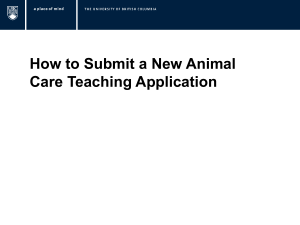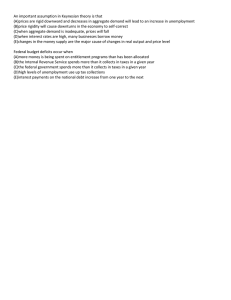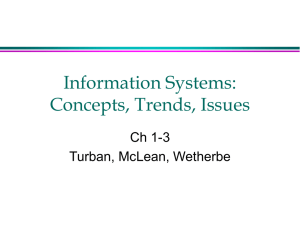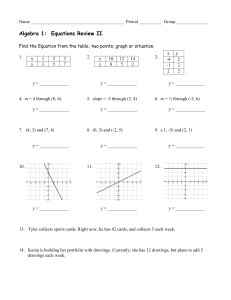(I): recognition of the need for, and an ability to engage in life
advertisement
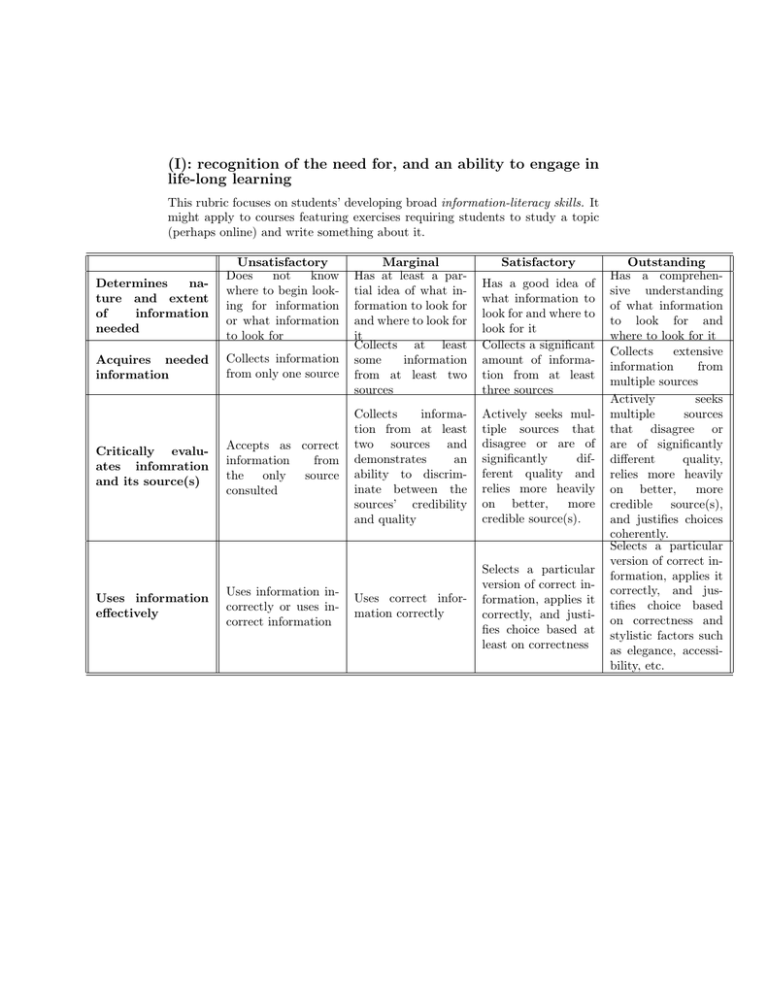
(I): recognition of the need for, and an ability to engage in life-long learning This rubric focuses on students’ developing broad information-literacy skills. It might apply to courses featuring exercises requiring students to study a topic (perhaps online) and write something about it. Determines nature and extent of information needed Acquires needed information Critically evaluates infomration and its source(s) Uses information effectively Unsatisfactory Does not know where to begin looking for information or what information to look for Collects information from only one source Accepts as correct information from the only source consulted Uses information incorrectly or uses incorrect information Marginal Has at least a partial idea of what information to look for and where to look for it Collects at least some information from at least two sources Satisfactory Has a good idea of what information to look for and where to look for it Collects a significant amount of information from at least three sources Collects information from at least two sources and demonstrates an ability to discriminate between the sources’ credibility and quality Actively seeks multiple sources that disagree or are of significantly different quality and relies more heavily on better, more credible source(s). Uses correct information correctly Selects a particular version of correct information, applies it correctly, and justifies choice based at least on correctness Outstanding Has a comprehensive understanding of what information to look for and where to look for it Collects extensive information from multiple sources Actively seeks multiple sources that disagree or are of significantly different quality, relies more heavily on better, more credible source(s), and justifies choices coherently. Selects a particular version of correct information, applies it correctly, and justifies choice based on correctness and stylistic factors such as elegance, accessibility, etc.


